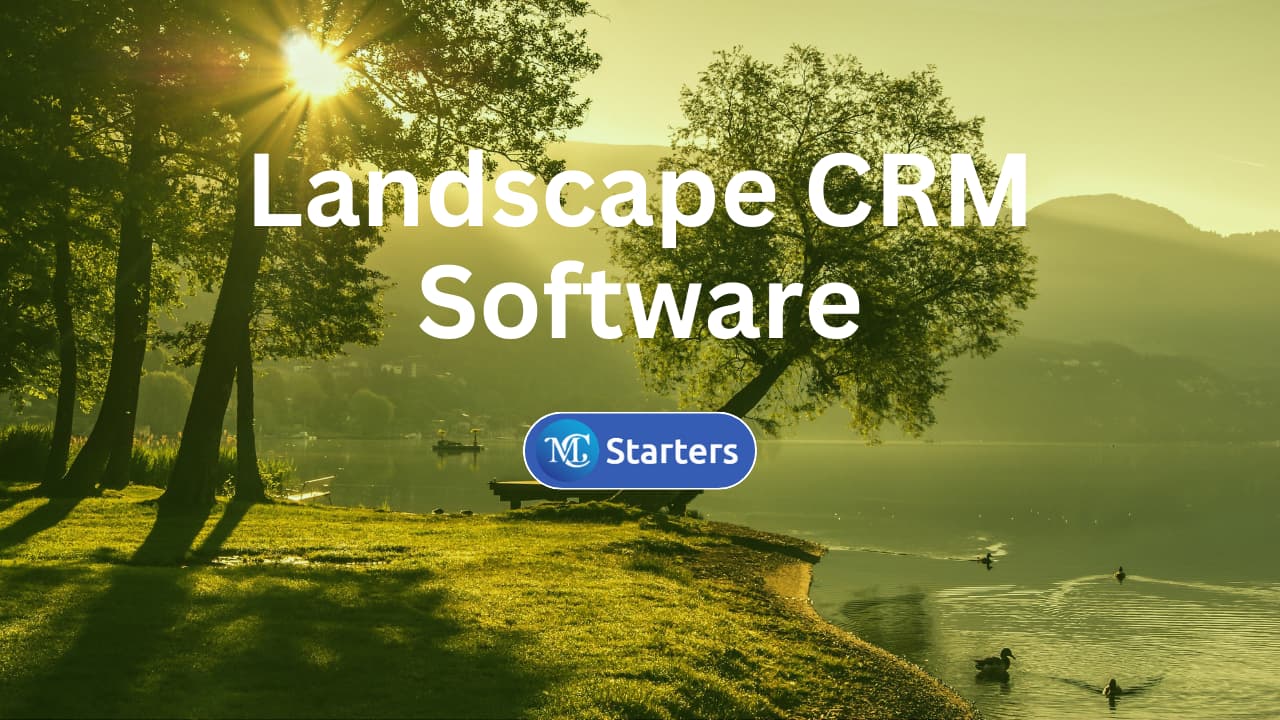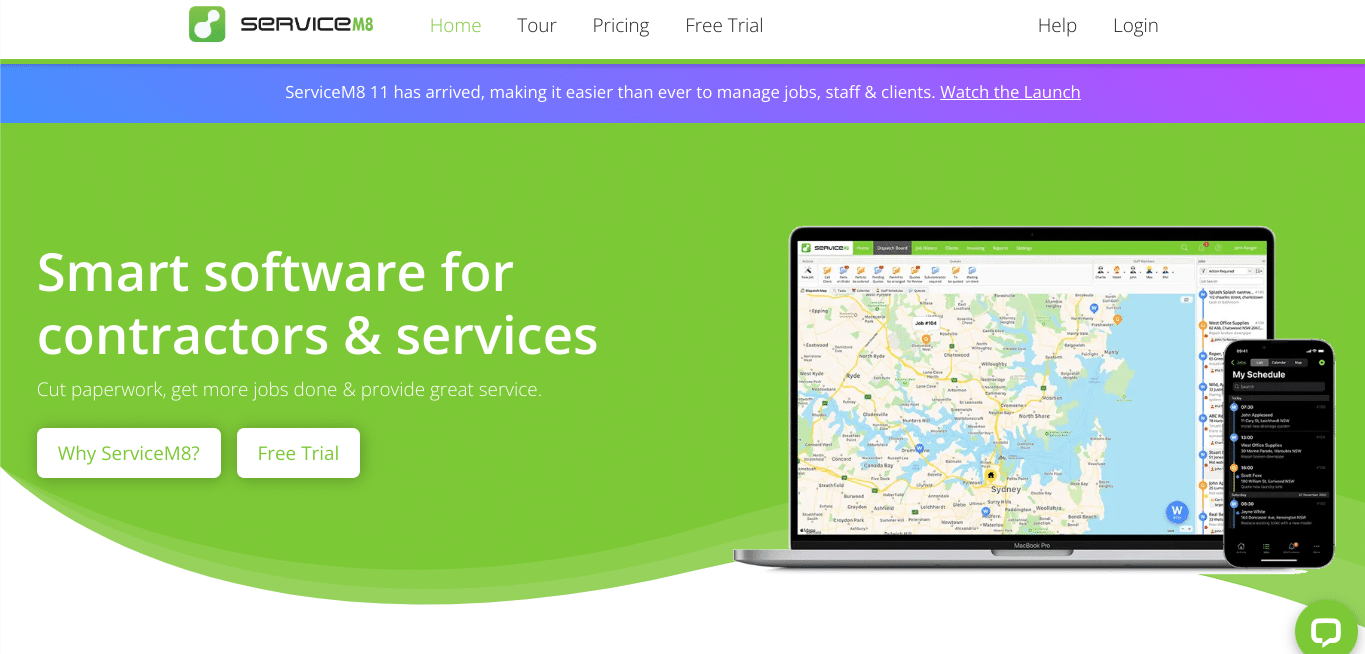Best crm for landscape company – In the realm of landscape management, the best CRM for landscape companies emerges as a cornerstone for success. This comprehensive guide delves into the intricacies of selecting the ideal CRM solution, empowering businesses with the tools to optimize operations, boost revenue, and elevate customer satisfaction.
Navigating the landscape of CRM solutions can be a daunting task. However, by understanding the unique needs of landscape businesses and evaluating key criteria, companies can make informed decisions that drive tangible results.
CRM Features Essential for Landscape Companies
The unique requirements of landscape businesses demand a specialized CRM solution that can effectively manage the complexities of their operations. Specific CRM features are crucial for addressing these needs and streamlining business processes.
Essential CRM features for landscape companies include:
Job Scheduling
Effective job scheduling is vital for landscape companies to optimize resource allocation and ensure timely project completion. CRM systems with robust scheduling capabilities enable seamless coordination of crews, equipment, and materials, ensuring smooth execution and customer satisfaction.
Invoicing
Accurate and efficient invoicing is essential for landscape businesses to maintain cash flow and manage revenue. CRM systems with integrated invoicing features streamline the billing process, allowing for quick and accurate invoice generation, payment tracking, and online payment processing.
Project Management
Managing multiple projects simultaneously requires efficient project management capabilities. CRM systems provide a centralized platform to track project progress, manage budgets, and collaborate with team members, ensuring seamless project execution and timely delivery.
Market Analysis of Top CRM Solutions

The landscape industry relies heavily on CRM systems to manage customer relationships, streamline operations, and optimize growth. Understanding the leading CRM providers and their market position is crucial for landscape companies seeking to implement the best CRM solution.
Market Share and Customer Base
Leading CRM providers in the landscape industry include Salesforce, HubSpot, and Zoho. Salesforce dominates the market with a significant share, followed by HubSpot and Zoho. Salesforce boasts an extensive customer base, including major landscaping companies such as TruGreen and BrightView.
HubSpot has gained popularity among smaller landscaping businesses due to its user-friendly interface and affordable pricing.
Key Differentiators
Each CRM provider offers unique features and advantages that cater to specific needs. Salesforce excels in enterprise-level solutions, providing robust functionality for large landscaping companies with complex requirements. HubSpot focuses on marketing automation and lead generation, making it ideal for businesses looking to enhance their customer acquisition strategies.
Zoho offers a comprehensive suite of tools that include CRM, accounting, and project management, appealing to companies seeking an all-in-one solution.
Industry Trends
The landscape industry is experiencing several trends that influence the selection of CRM systems. The increasing adoption of mobile technology has led to a demand for mobile-friendly CRMs that allow landscapers to access customer information and manage tasks on the go.
Additionally, the growing emphasis on customer experience has driven the need for CRMs that offer personalized communication channels and customer self-service portals.
CRM Evaluation Criteria for Landscape Companies
Evaluating CRM solutions for landscape companies requires a structured approach that aligns with their unique needs and business objectives. By establishing key criteria and prioritizing them, landscape businesses can ensure they select a CRM that empowers their operations and drives growth.
The evaluation framework should encompass the following key aspects:
Features and Functionality
- Customer Management:Ability to manage customer profiles, track interactions, and segment customers based on specific criteria.
- Job Management:Functionality to create, schedule, and track jobs, including estimates, invoices, and payments.
- Equipment Management:Features to track and manage equipment inventory, maintenance schedules, and repair history.
- Inventory Management:Functionality to manage inventory levels, track materials used, and optimize purchasing.
- Reporting and Analytics:Robust reporting capabilities to generate insights into sales performance, customer behavior, and operational efficiency.
User Experience
- Ease of Use:Intuitive and user-friendly interface that simplifies adoption and minimizes training time.
- Mobile Accessibility:Ability to access and manage CRM data on mobile devices for on-the-go access.
- Customization:Flexibility to tailor the CRM to specific business processes and workflows.
- Integration:Seamless integration with other business systems, such as accounting software and project management tools.
Cost and Value
- Pricing Model:Subscription-based or one-time purchase, with clear pricing and licensing terms.
- Return on Investment:Projected return on investment (ROI) based on increased efficiency, improved customer satisfaction, and revenue growth.
- Support and Training:Availability of ongoing support, training, and documentation to ensure successful implementation and adoption.
Case Studies of Successful CRM Implementations
Landscaping companies that have successfully implemented CRM systems have experienced significant improvements in their operations. These companies have overcome challenges such as fragmented customer data, inefficient communication, and limited visibility into sales pipelines. By adopting CRM solutions, they have streamlined their processes, increased sales, and enhanced customer satisfaction.
Green Thumb Landscaping, Best crm for landscape company
- Challenge:Fragmented customer data stored in multiple spreadsheets and databases.
- Solution:Implemented a CRM system that centralized all customer information, providing a single source of truth.
- Results:Improved efficiency by reducing time spent searching for customer data, leading to increased sales and enhanced customer satisfaction.
Bloom & Grow Landscape Design
- Challenge:Inefficient communication between sales and operations teams, resulting in missed appointments and project delays.
- Solution:Integrated their CRM system with their scheduling software, enabling real-time updates and improved coordination.
- Results:Reduced missed appointments by 50%, increased project completion rates, and improved customer satisfaction.
Nature’s Touch Landscaping
- Challenge:Limited visibility into sales pipelines, making it difficult to forecast revenue and plan for growth.
- Solution:Implemented a CRM system with robust reporting and analytics capabilities, providing insights into sales performance and customer behavior.
- Results:Improved sales forecasting accuracy by 25%, enabling better decision-making and increased revenue.
Emerging Trends in CRM for Landscape Companies
The landscape industry is undergoing a digital transformation, and CRM technology is at the forefront of this change. Landscape companies that embrace emerging CRM trends will gain a competitive edge by enhancing their customer relationships, streamlining operations, and increasing profitability.
Mobile Optimization
Mobile optimization is essential for landscape companies, as field teams often need to access customer information, schedule appointments, and update job statuses on the go. Mobile-friendly CRM solutions allow field staff to stay connected and productive, even when they are not in the office.
Artificial Intelligence
Artificial intelligence (AI) is rapidly changing the CRM landscape. AI-powered CRM solutions can automate tasks, provide insights into customer behavior, and generate personalized recommendations. Landscape companies can use AI to improve lead generation, nurture customer relationships, and increase sales.
Data Analytics
Data analytics is another key trend in CRM. CRM solutions that offer robust data analytics capabilities allow landscape companies to track key metrics, such as customer acquisition costs, customer lifetime value, and employee productivity. This data can be used to identify areas for improvement and make informed decisions.
Integration with Other Business Systems
CRM systems that integrate with other business systems, such as accounting software, project management tools, and marketing automation platforms, can streamline operations and improve efficiency. Landscape companies should look for CRM solutions that offer seamless integration with their existing systems.
Cloud-Based CRM
Cloud-based CRM solutions are becoming increasingly popular, as they offer a number of advantages over on-premise solutions. Cloud-based CRM solutions are more affordable, scalable, and secure. They also allow landscape companies to access their CRM data from anywhere, at any time.
Implementation Strategies for Landscape Companies
Implementing a CRM system in a landscape company requires careful planning and execution. By following a step-by-step guide and considering best practices, companies can ensure a smooth and successful implementation.
Data Migration
Data migration is a crucial step in CRM implementation. It involves transferring existing customer and business data from old systems to the new CRM system. To ensure accuracy and completeness, companies should:
- Identify all relevant data sources and data formats.
- Develop a comprehensive data mapping plan to match old data fields with new CRM fields.
- Use data cleansing tools to remove duplicate or inaccurate data.
- Test the data migration process thoroughly before executing it.
User Training
User training is essential for successful CRM adoption. Companies should provide comprehensive training to all users on the system’s functionality, best practices, and reporting capabilities. Training should:
- Be tailored to different user roles and responsibilities.
- Include hands-on exercises and real-world scenarios.
- Provide ongoing support and resources for users.
Change Management
CRM implementation can involve significant changes to business processes and workflows. To minimize disruption and ensure user acceptance, companies should:
- Communicate the benefits of the CRM system to all stakeholders.
- Involve users in the implementation process to gather feedback and address concerns.
- Provide a structured change management plan that Artikels the implementation timeline, responsibilities, and communication channels.
Closure

Embracing the latest CRM advancements and implementing a tailored solution empowers landscape companies to gain a competitive edge, streamline processes, and unlock new heights of efficiency. As the industry continues to evolve, businesses that leverage the power of CRM will undoubtedly reap the rewards of enhanced productivity, increased profitability, and unwavering customer loyalty.
Question Bank: Best Crm For Landscape Company
What are the key features to look for in a CRM for landscape companies?
Essential features include job scheduling, invoicing, project management, customer relationship management, and reporting.
How can a CRM help landscape companies improve efficiency?
CRM streamlines operations by automating tasks, centralizing data, and providing real-time insights.
What are the benefits of implementing a CRM for landscape companies?
Benefits include increased sales, improved customer satisfaction, enhanced productivity, and better decision-making.
